 We're just a few days away from The Dramatists Guild of America's Playwrights: Taking Control of Our Own Fates workshop at the Kennedy Center. Organized by Brent Englar, Gwydion Suilebhan, and Noelle Viñas, this day-long workshop will cover a wide variety of subjects of critical importance to dramatists in the 21st century. Click here to learn more. From 4:30-6:00 pm, there will be a Town Hall Brainstorming to discuss the fate of the DC and Baltimore playwriting community: the issues we're facing and how we'd like to address them. This should be a vital opportunity for connection, empowerment, and direction for all of us. When the Town Hall was announced, I connected with my dear friend and fellow playwright, D.W. Gregory about her thoughts. We had such a wonderful conversation that I decided to reach out to a several others who are planning to attend. I wanted to hear their thoughts on what they hoped to discussed. Each of them has generously agreed to share their thoughts here as well. Thoughts from D.W. Gregory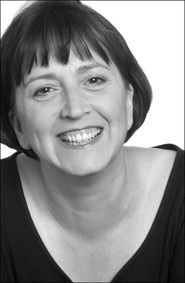 One of the hardest things for new playwrights to do is to meet actors and directors and to be taken seriously within the community. There is no question that writers who start out as actors or directors have a much easier time getting their work out in the world and getting productions. But there is a place in this world for playwrights who are writers only. What can be done to school young writers (young in experience) in how to work it? What opportunities can we create to help playwrights figure out the business of playwriting? The obligation of playwrights is to learn the craft -- learn it well. It seems there is not a culture of craft development in D.C. -- and there needs to be. So what can we do to foster this idea -- we are all on a learning curve, all the time. How can we learn from each other--how we can we better, smarter, more efficient, more adventurous practitioners of our craft? The other leg of the stool is learning to work collaboratively. This comes about mainly through actual work -- readings, productions, workshops. If you have few opportunities it is a critical part of your learning curve that is denied to you. So how do we create more opportunities to put playwrights, actors, directors, and designers in the same room? If it is not for purposes of production, that doesn't mean it can't be enormously informative and helpful to playwrights. ~~~~~~~~~~~~~~~~~~~~~~~~~~~~~~~~~~~~~~~~~~~~~~~~~~~~~~~~~~~ D.W. Gregory writes in a variety of styles and genres, but a recurring theme is the exploration of political issues through a personal lens. The New York Times called her “a playwright with a talent to enlighten and provoke” for her most produced work, RADIUM GIRLS, which has received nearly 300 productions worldwide since its premiere at Playwrights Theatre of New Jersey. A resident playwright at New Jersey Rep, Gregory received a Pulitzer Prize nomination for the Rep’s production of her drama THE GOOD DAUGHTER. Gregory is an affiliated writer with the Playwrights Center and a member of the Dramatists Guild. Thoughts from Jenny Splitter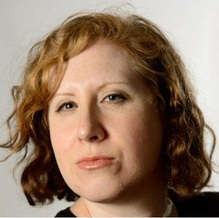 The crucial question seems to be how do we carve out our own space. That is both literal and specific -- how do we find and pay for performance, rehearsal and even advertising space -- and broader and abstract -- what kind of work do we want to do? How do we define ourselves as artists? How do we find and engage our audience? We might consider a model in which we work together to help everyone succeed (e.g., pooling resources, negotiating for space as part of a larger group, providing feedback and advice, creating an exchange to utilize our own intellectual capital and skills (legal advice, graphic design, branding, social media marketing, etc.). ~~~~~~~~~~~~~~~~~~~~~~~~~~~~~~~~~~~~~~~~~~~~~~~~~~~~~~~~~~~ Jenny Splitter is a storyteller, playwright and blogger living in Washington, DC. Her plays include The Dish (premiering at the 2014 Capital Fringe Festival), Birth Goddess and H Street Housewives. She has performed her stories for the Risk! podcast, SpeakeasyDC and Story League, and she blogs at groundedparents.com and mamaliciousinthecity.com. 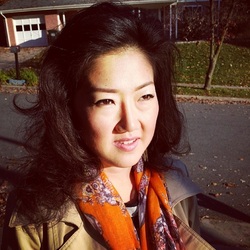 How can we earn a living wage while also having time to create and produce our art? Some folks are in school. Some are raising young children. How can we stay faithful to our art-making inner child when we have a host of distractions (life events, TV and film to catch up on, love lives)? I guess others have done it so we can somehow manage making work while living full lives. One playwriting professor, who had two young children, told me he wakes up at 5am everyday and does his work then. When I was a younger, I felt this need for validation. So I went to graduate school to study theater. I also felt that a professional production somewhere would launch my career. Oftentimes, it can. But the older I get, I feel like producing and directing my own work at the small scale. If the play works in my living room, then surely it may on a larger stage. I just feel more D.I.Y. these days instead of sitting around hoping and fantasizing that someone will fall in love with my work and produce it. ~~~~~~~~~~~~~~~~~~~~~~~~~~~~~~~~~~~~~~~~~~~~~~~~~~~~~~~~~~~ Born in South Korea and raised outside Washington, D.C., playwright Soo-Jin Lee is the daughter of shopkeepers. She grew up speaking both English and Korean and immigrated to the United States in 1982. Lee holds a M.F.A. in Theater from the University of Texas at Austin (2008) and a B.A. in Communication from George Mason University (2003). Her plays include Peaches, Tigers, Dragons, and Other Wise Tails!, Holiness People, and Why Koreans Don’t Hug. Thoughts from Patricia Connelly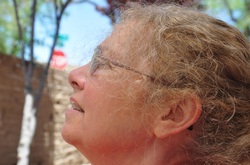 Playwrights are in a unique position among theater artists: we spend much of our time working alone and, unlike other theater artists, we don’t have many opportunities to do our work in the local community where we live. Besides producing our own work and starting our own companies, are there other ways we as playwrights can make ourselves a regular and integral part of the local theater community? Gender parity: are there more effective ways we local playwrights as a group can encourage and support efforts to bring about gender parity in the local theater community? Would it be to our advantage to organize formally – such as form a women’s committee within the DC-Area Playwrights group – to help raise awareness about gender parity and advocate for women playwrights among the local theater community? ~~~~~~~~~~~~~~~~~~~~~~~~~~~~~~~~~~~~~~~~~~~~~~~~~~~~~~~~~~~ Patricia Connelly is an award-winning playwright and director. Her plays have been presented at the Kennedy Center’s Page to Stage Festival and have been produced in Washington, D.C., and New Mexico. Her play, The Penny or the Stone, won the Robert Bone Memorial Playwriting Award at the Dallas Theatre Center. Other full-length plays include: What Happens in This Town, All the Sins of My Past Life, Harriet, Night Sky, and Princess Margaret. She has taught playwriting and theater and produced new play festivals at the University of New Mexico. She is a member of the Dramatists Guild and Playwrights Forum. Thoughts from Paco José Madden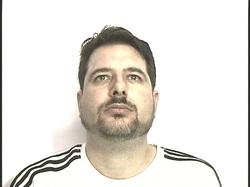 Access (the doors to get your script in front of a producer, director, AD is daunting for those who do not have the right connections, pedigree, and/or financial resources) Diversity (whether men of color or women or working class or disabled) DC does not have a playwright center to act as an advocacy group to voice issues and concerns of the local playwrights, provide resources, create opportunities, and foster community. Small communities exist such as the Welders and there is a strong on-line presence with the DC Playwrights Facebook Group, but there is not bricks-and-mortar institution that is the voice of DC area playwrights. (I don't necessarily believe a locally focused playwrights institute would solve all or any of the aforesaid issues and may just become another fjord that is difficult for playwrights to cross. However, without such a center to give, at the very least, some clout to local playwrights, we are little more than second class citizens in the minds of DC regional theater producers and decision makers. ~~~~~~~~~~~~~~~~~~~~~~~~~~~~~~~~~~~~~~~~~~~~~~~~~~~~~~~~~~~ Paco José Madden is a DC-native with a BA in Drama from Catholic University of America. He has self-produced three full-length dramatic works at the Capital Fringe Festival and has had his shorter works produced across the US. Paco has won several awards and grants from the DC Commission on the Arts and Humanities in playwriting and screenwriting. Among other works-in-progress, he is writing a steampunk stage version of Frankenstein. Thoughts from Brent Engler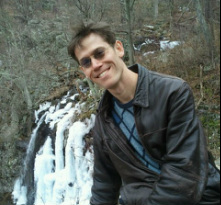 There are countless issues facing dramatists--the gap between new play development and new play productions; fair (or, more frequently, any) compensation; online piracy--and I'm sure we'll touch on most of them. But the most interesting challenge facing me, as a dramatist, is to figure out what theater can be --- needs to be --- to remain vital for diverse audiences in the 21st century. ~~~~~~~~~~~~~~~~~~~~~~~~~~~~~~~~~~~~~~~~~~~~~~~~~~~~~~~~~~~ Brent Engler is the Baltimore Regional Representative for the Dramatists Guild of America. My plays have been produced throughout Maryland, including Baltimore, as well as in New York, Chicago, and DC. I am also the director of the Mobtown Playwrights Group, an offshoot of Baltimore’s Mobtown Players; our season consists of public readings of three new plays by local writers, culminating in a full production of one of the selected plays. Thoughts from Ann-Marie Dittmann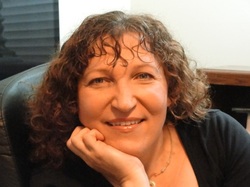 Looking at theater and therefore playwrighting as a business, how to we make it more viable, lucrative, appealing to audiences and producers? A challenge I see facing playwrights in general, and is only beginning to be addressed, is how to build momentum for multiple productions of a new work. Certainly NNPN has made a start, but are these playwrights seeing productions beyond the initial rollouts, and how do we build that sort of momentum on a larger scale. Part of addressing the challenge of obtaining multiple productions for a given play is also capacity building with audiences. Producers, especially at the larger theaters, note that new plays are difficult to sell. How then do we as writers, dramaturgs, and producers make new plays and new play development more appealing to a broader audience, so that they seek new work? How do we make DC a reliable “pipeline” for New York or other larger producers? Or should we be trying to. Having worked at Goodspeed Musicals, I know that there was quite a strong audience for their new work, but that was cultivated over time and largely due to Goodspeed’s reputation for sending workshop shows or transferring shows to Broadway. People were excited by the possibility of seeing the next big Broadway show before it hit New York. How do we build that sort of interest here? Or should we? Is it better to cultivate a larger interest in new work for its own sake? If so, how do we build that sort of audience interest/ buy in to new plays? ~~~~~~~~~~~~~~~~~~~~~~~~~~~~~~~~~~~~~~~~~~~~~~~~~~~~~~~~~~~ Ann-Marie Dittmann is a freelance Dramaturg. She recently began her fourth year as a Helen Hayes Awards Judge, this year joining the New Play Panel. Previous dramaturgical positions include: Audience Enrichment Manager at Arena Stage (2001-2004) and Literary Assistant at Goodspeed Musicals (1990-1992). She holds a BFA in Theater Studies, Dramaturgy from Boston University and a MA in Theater History and Dramatic Literature from Tufts University. She has recently returned to playwriting after a hiatus that has lasted since her undergraduate days, when her play, The Last Man, was produced as part of the Parkland College Original Playwrights Workshop. Thoughts from Kitty Felde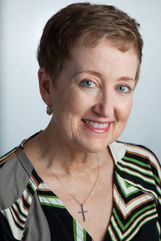 The greatest challenge is time. The day job consumes me. There are only so many hours in a day. I carve out the early mornings – long before my Pasadena public radio colleagues are awake - for the work I care about, my characters and magical worlds that seem much more real to me than that white dome on Capitol Hill. I dream of long, uninterrupted days that I can call my own to be a 24/7 playwright. ~~~~~~~~~~~~~~~~~~~~~~~~~~~~~~~~~~~~~~~~~~~~~~~~~~~~~~~~~~~ By day, Kitty Felde covers Capitol Hill for public radio. But in real life, she's an award-winning playwright. Work includes a courtroom drama about the Bosnian war (A PATCH OF EARTH, winner Maxim Mazumdar New Play Competition), an adaptation of stories by Nikolai Gogol (GOGOL PROJECT, winner 2009 LA Drama Critics Circle Award), even a one-woman show with a ghost (ALICE, an evening with the tart-tongued daughter of Theodore Roosevelt, named Washington Post "Critic's Pick" at the Capital Fringe Festival. She co-founded Theatre of NOTE in Hollywood and ran the playwriting program at HOLA Youth Theatre in LA. While Playwrights: Taking Control of Our Own Fates workshop won't be livestreamed, there are several bloggers and tweeters in this group. To follow the conversation, use #PwFate #newplay.
0 Comments
Your comment will be posted after it is approved.
Leave a Reply. |
My BlogI'm a playwright, dramaturg, and teaching artist. It is here where you'll find my queries and musings on life, theater and the world. My posts advocate for diversity, inclusion, and equity in the American Theatre and updates on my own work. Please enjoy!
Categories
All
Archives
June 2020
Reading List
|
